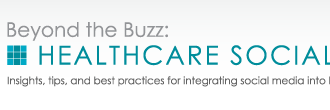I was recently invited to take part in panel discussion on the value of networking and how to do it effectively. It’s not something I consider myself to be an expert in (in fact I wouldn’t refer to myself as an expert in anything!), but it is something I enjoy, although I would simply describe it as being interested in people.
I was recently invited to take part in panel discussion on the value of networking and how to do it effectively. It’s not something I consider myself to be an expert in (in fact I wouldn’t refer to myself as an expert in anything!), but it is something I enjoy, although I would simply describe it as being interested in people.
One of the questions that came up was on what I regarded as good networking. My response was that it’s very much like a ‘business’ version of good friendship – it’s about regularly keeping in touch and not just contacting people when you want something. That’s why good business relationships sometimes become friendships.
Now hold that thought and put it in the context of how pharmaceutical companies and other commercial life science providers often engage with their ‘customers’ – doctors, patient organisations and patients. Sales and marketing activities are typically orchestrated around carefully planned campaigns, where activity is ramped up from a near baseline level to a coordinated push across both digital and traditional channels, aligned to events of interest to that company. If you want a good example, just take a look at the sheer volume of digital media being published on a specific disease area during the few days that a relevant medical congress is taking place, then compare and contrast with the volume of media a few weeks either side.
There is nothing wrong with escalating communication activities around such events, as it makes perfect sense to take advantage of the collective focus at such times. For those few days of a medical congress every Key Opinion Leader must feel like the most popular person in the world, with every company trying to engage with them. Patient organisations can feel the same way in the run up to some new treatment guidelines in their space, or the launch of a new product. Individual patients suddenly feel enormously loved when companies are launching their new patient-centricity initiative.
But the problem is what happens outside of these specific time points, which all too often is very little. As a senior figure in one of the leading patient organisations once replied when asked what he thought about collaboration with commercial companies: “they only come to us when they want something”. In other words, such campaign-focussed engagement can seem very lacking in authenticity from the perspective of the customer.
To come back to our starting point on networking and friendship, it’s like the business contact who pops up only when they want to sell you something, or the absent friend that only appears when they want your help.
Of course, marketers will roll out their analytics and explain how the return on investment from such activities is far greater when conducted around product launches, medical congresses and so forth. That is probably true when you measure it over a short timescale, but my question would be to ask what companies are missing out on by not engaging more regularly with doctors and patients.
With more ongoing discussion, companies are constantly getting feedback on their products, unmet needs and market developments. But they are also getting something much more useful – credibility. They are building truly mutually-beneficial relationships, which means that their amplified activity conducted at times when they really want to get their message across will be viewed more positively than those ‘periodic corporate friends’.
Yes, this requires a bit more time and investment at times when it is not seen as a priority, but the payoff in terms of enhanced trust with customers, the additional intelligence it provides and access to those customers when needed more than covers this, in my opinion.
After all, doctors and patients live and breathe medical conditions every day. For them it’s not a short-term campaign, but an ongoing battle for longer, better quality lives. Why should commercial providers view it any differently?







